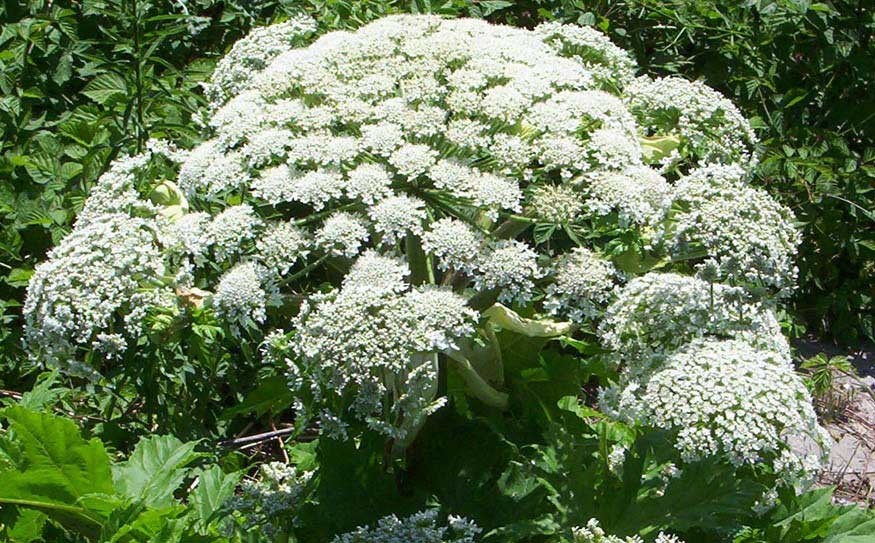The Sea to Sky Invasive Species Council has been in search and destroy mode the last few years, working with landscapers, governments, landholders and its own crews to eradicate invasive species of plants before they can do lasting damage to the local ecology. Starting this spring, the SSISC is looking to involve private landowners as well, creating an incentive program for people to address invasive species in their own backyards.
"This program provides landowners, managers and occupiers throughout the Sea to Sky corridor with the guidance, support and financial resources necessary to manage invasives," said SSISC executive director Kristina Swerhun.
The pilot program will rebate up to half the cost of removing two particularly troublesome species or between $500 to $1,000, depending on the size of the property and sensitivity of the location.
Giant hogweed contains a poisonous sap that burns if exposed to UV rays, and presents a serious health threat to people and animals. It can lead to scarring and even blindness.
Japanese knotweed is a species that causes so much property damage that you can't get a mortgage in the U.K. if it's present in the area. It chokes rivers and streams, displaces natural plants that are important to the ecology and is incredibly hard to remove. Even a small sliver of root left behind is enough to grow a new knotweed.
Both species have been found in Sea to Sky, although they are still rare.
"This is a great opportunity to address those individuals who really don't know who to turn to with the issue and involve them positively," said Swerhun. "Public lands are still an issue; however, we do already have partners responsible for those lands."
To take part, fill out a "Request for Assistance" form on the SSISC website, www.ssisc.info, before June 1, 2012.
As well as the new pilot program the SSISC is continuing to certify landscapers and horticulturalists in Sea to Sky, and will involve companies already certified in 2011 to help remove invasives from private land.




